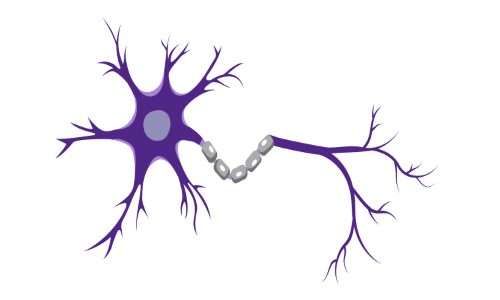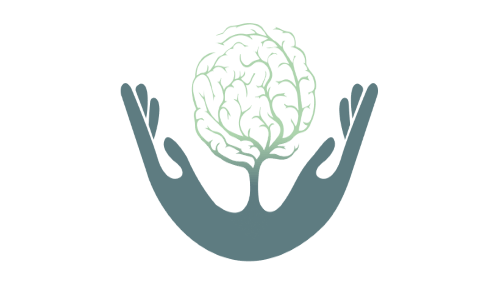
by Jennifer Sweeton, PsyD, MS, MA | Sep 4, 2019 | Uncategorized
Date course created: September 2019
Therapy Techniques Based on Neuroscience
Bring the latest findings from neuroscience into your treatments. Learn Interventions that have been associated with sustainable brain change, including those that can alter brain pathways and networks to help treat trauma, anxiety, depression, and addiction.
This seminar teaches you how to promote healthy transformation and recovery in the brains of those experiencing trauma, stress, addiction, anxiety, and depression. By initiating this healthy brain change using top-down, bottom-up, and horizontal methods, you add new capacity for progress to each therapy session. This seminar gives you conceptual and experiential tools you can use to help build your own techniques and foster client growth and independence!
**This is a 6-CE noninteractive, self-paced online video course delivered in home study format via an industry-standard online learning platform**
Agenda:
00:00 – 01:00: Tour the Brain
01:00 – 02:00: The Social Brain
02:00 – 03:00: Neuroplasticity
03:00 – 04:00: Bottom up, Top down, Horizontal Interventions
04:00 – 05:00: Integrating the Brain into Treatments
05:00 – 06:00: Six Principles for Guiding your Practice
Objectives for Neuroscience Therapy Techniques:
a). After completing this training, participants will be able to communicate key nervous system structures, functions and pathways.
b). After completing this training, participants will be able to explore brain alterations that occur from anxiety, trauma and stress, substance abuse, and depression.
c). After completing this training, participants will be able to support how commonly applied treatments such as CBT, DBT, dynamic therapy, meditation and other forms of mindfulness can foster healthy brain change.
d). After completing this training, participants will be able to breakdown neuroplasticity and types of experiences that elicit it.
e). After completing this training, participants will be able to apply interventions that can be used to return the nervous system to natural balance.
f). After completing this training, participants will be able to evaluate specific techniques that enhance attention, interoception, affect regulation and sensory-motor awareness.
g). After completing this training, participants will be able to practice six principles that guide you when including the brain during treatment.
Target Audience:
The target audience for this event includes psychologists, licensed clinical social workers, licensed counselors, MFT’s, and other clinical mental health professionals.
Instructional Level: Intermediate
Instructor(s): Jennifer Sweeton, PsyD, MS, MA
Material Author(s): Jennifer Sweeton, PsyD, MS, MA

Dr. Jennifer Sweeton is a licensed clinical psychologist, best-selling author, and internationally-recognized expert on anxiety and trauma, and the neuroscience of mental health. She completed her doctoral training at the Stanford University School of Medicine, the Pacific Graduate School of Psychology (now Palo Alto University), and the National Center for PTSD. Additionally, she holds a master’s degree in affective neuroscience from Stanford University, and studied behavioral genetics at Harvard University. Dr. Sweeton resides in the greater Kansas City area, where she owns a group private practice, Kansas City Mental Health Associates (trade name for Mind Works Consulting and Psychological Services, PLLC). She formerly served as the President of the Oklahoma Psychological Association, and holds adjunct faculty appointments at the University of Kansas School of Medicine and the University of Oklahoma Health Sciences Center. She is the current President of the Greater Kansas City Psychological Association. Dr. Sweeton offers psychological services services to clients in Oklahoma, Kansas, and internationally, and is a sought-after trauma and neuroscience expert who has trained more than 10,000 mental health professionals in her workshops.
For additional information about this course, the instructors, or the material authors, please contact Content Assistance at content@onlinececredits.com.
Course Materials & Delivery Method:
- Course materials – The course is composed of a recorded presentation and written materials (e.g. a slide deck and/or other worksheets, manuals, or handouts as provided by the instructor). The slide deck and any additional worksheets or handouts (as provided by the instructor) are made available inside the Lesson module after a course is purchased.
- Delivery Method – this course is a recorded asynchronous, self-paced webinar training, and there is no access time limit or due date to complete it once enrolled. The enrolled learner will stream the recorded presentation and view the materials from their internet connected device via an industry-standard online learning platform.
CE Approvals:

Online CE Credits has been approved by NBCC as an Approved Continuing Education Provider, ACEP No. 6795. Programs that do not quality for NBCC credit are clearly identified. Online CE Credits is solely responsible for all aspects of the programs.

Mind Works Professional Education, Inc. DBA Online CE Credits, #1974, is approved as an ACE provider to offer social work continuing education by the Association of Social Work Boards (ASWB) Approved Continuing Education (ACE) program. Regulatory boards are the final authority on courses accepted for continuing education credit. ACE provider approval period: July 23, 2024 – July 23, 2025. Social workers completing this course receive 6 clinical continuing education credits.
Other Helpful Information:
- Refund & Cancellation Policy – you may review this policy at any time by clicking here.
- Accessibility Accommodations – if you require a reasonable accommodation for any reason, please email your request to cc@onlinececredits.com
- Course Completion Requirements – 1.) View the entire Lesson module (accessible from the main course page), to include the embedded and/or linked presentation video(s), slide deck, additional materials, and/or links to any shared video clip(s) that may have been edited from the presentation video(s) to comply with copyright laws. 2.) Click into the Quiz module accessible from either the main course page or the Lesson page and complete the Quiz with an 80% or better pass rate. 3.) Complete the course evaluation – you’ll be sent to the evaluation automatically once you successfully pass the Quiz.
- Posttest Requirements – you must answer 80% or more of the Quiz questions correctly to pass. If you fail to pass the first time, you may attempt the quiz again until you are able to pass with a score of 80% or better. Quizzes are graded instantly and automatically by the learning management system once your attempt is submitted.
- Certificate of Completion – certificates of completion are automatically generated – downloadable from your Dashboard and emailed to you – once you view the Lesson materials and complete the Quiz and the course evaluation.
- How to Enroll – Login to the website first if you already have a user account. If not, you will create your permanent user account login information during course enrollment. Select the appropriate course library using the top menu of the website. Once inside your chosen course library, find and select your desired course to be taken to the main course page. Click the button on the top banner to enroll. When the order window pops up, enter your details and place your order. You will be emailed an enrollment confirmation message, and you’ll be sent to a landing page instructing you how to begin your newly enrolled course.
- System Requirements –
- Recommended Devices: Desktop, Laptop, or Tablet computer. (Note: Our platform is mobile responsive and may be fully accessed from a connected smartphone).
- Suggested Browsers: Updated version of Google Chrome, Microsoft Edge, or Apple Safari.
- Recommended Network: Home wifi, ethernet, or a public wifi with VPN (Note: agency or corporate networks are often equipped with restrictive firewalls that may adversely impact your experience on our platform).
- Recommended speed/bandwidth: Minimum download speed > 20Mbps and minimum upload speed > 6Mbps.

by Ashley Garrison, LCSW | Sep 3, 2019 | Uncategorized
Date course created: September 2019
A study by the School of Medicine at the University of Colorado, Denver, states that suicide assessment is essential to identify “modifiable and treatable risk factors that inform treatment.” Suicide assessment training helps therapists and mental health professionals use scientific methods to better understand their patients. Online CE Credits offers relevant and up-to-date suicide risk assessment and intervention training online. This program unpacks the Linehan Risk Assessment and Management Protocol (L-RAMP) and its application in suicide assessment and documentation.
Scroll down to discover more about the suicide prevention course.
Suicide assessment and documentation are critical, but sometimes it’s not clear how to do these tasks well. Attend this hands-on workshop to learn the practical application of Linehan Risk Assessment and Management Protocol (L-RAMP), which can be utilized in any clinical setting. This course will walk you through when to use the L-RAMP as an assessment instrument and how to properly document interventions and treatment actions for suicidal clients. While the L-RAMP is an evidenced based suicide risk management strategy used in Dialectical Behavior Therapy (DBT), there is no requirement or prerequisite for knowing or using DBT in order to begin to use the L-RAMP.
**This is a 2-CE noninteractive, self-paced online video course delivered in home study format via an industry-standard online learning platform**
Agenda:
0:00 – 0:40: Importance of Dialectics in DBT
0:40 – 1:20: DBT Dialectics: Change vs Acceptance
1:20 – 2:00: Research, Preventive Measures, and Suicide Methods
Objectives:
a). After completing this training, participants will be able to integrate the L-RAMP as a suicide assessment tool into clinical practice.
b). After completing this training, participants will be able to report increased knowledge and skill set on how to use the L-RAMP for clients with suicidal ideations, gestures, and attempts.
c). After completing this training, participants will be able to assess for use of the L-RAMP in clinical practice.
d). After completing this training, participants will be able to complete case scenarios using L-RAMP.
Target Audience:
The target audience for this event includes psychologists, licensed clinical social workers, licensed counselors, MFT’s, and other clinical mental health professionals.
Instructional Level: Intermediate
Instructor(s): Ashley Garrison, LSCSW, LMSW
Material Author(s): Ashley Garrison, LSCSW, LMSW
Ashley Garrison, LCSW, is the founder and owner of Hope & Healing, LLC. She currently contracts with an outpatient practice to perform and deliver an adherent DBT program model, and participates in a DBT consultation team that meets weekly to ensure DBT adherence. While Ashley uses a wide variety of evidence-based therapy models, she specializes in the use of Dialectical Behavioral Therapy (DBT), and has expertise in performing both stage I and stage II DBT treatment. Ashley conducts individual, group, and couples therapy, and brings nearly 10 years of experience as a social worker working with adults, children, and adolescents in a variety of settings. Additionally, she has trained and supervised several graduate students in their work with clients experiencing psychiatric and behavioral health needs.
For additional information about this course, the instructors, or the material authors, please contact Content Assistance at content@onlinececredits.com.
Course Materials & Delivery Method:
- Course materials – The course is composed of a recorded presentation and written materials (e.g. a slide deck and/or other worksheets, manuals, or handouts as provided by the instructor). The slide deck and any additional worksheets or handouts (as provided by the instructor) are made available inside the Lesson module after a course is purchased.
- Delivery Method – this course is a recorded asynchronous, self-paced webinar training, and there is no access time limit or due date to complete it once enrolled. The enrolled learner will stream the recorded presentation and view the materials from their internet connected device via an industry-standard online learning platform.
CE Approvals:

Online CE Credits has been approved by NBCC as an Approved Continuing Education Provider, ACEP No. 6795. Programs that do not quality for NBCC credit are clearly identified. Online CE Credits is solely responsible for all aspects of the programs.

Mind Works Professional Education, Inc. DBA Online CE Credits, #1974, is approved as an ACE provider to offer social work continuing education by the Association of Social Work Boards (ASWB) Approved Continuing Education (ACE) program. Regulatory boards are the final authority on courses accepted for continuing education credit. ACE provider approval period: July 23, 2024 – July 23, 2025. Social workers completing this course receive 2 clinical continuing education credits.
Other Helpful Information:
- Refund & Cancellation Policy – you may review this policy at any time by clicking here.
- Accessibility Accommodations – if you require a reasonable accommodation for any reason, please email your request to cc@onlinececredits.com
- Course Completion Requirements – 1.) View the entire Lesson module (accessible from the main course page), to include the embedded and/or linked presentation video(s), slide deck, additional materials, and/or links to any shared video clip(s) that may have been edited from the presentation video(s) to comply with copyright laws. 2.) Click into the Quiz module accessible from either the main course page or the Lesson page and complete the Quiz with an 80% or better pass rate. 3.) Complete the course evaluation – you’ll be sent to the evaluation automatically once you successfully pass the Quiz.
- Posttest Requirements – you must answer 80% or more of the Quiz questions correctly to pass. If you fail to pass the first time, you may attempt the quiz again until you are able to pass with a score of 80% or better. Quizzes are graded instantly and automatically by the learning management system once your attempt is submitted.
- Certificate of Completion – certificates of completion are automatically generated – downloadable from your Dashboard and emailed to you – once you view the Lesson materials and complete the Quiz and the course evaluation.
- How to Enroll – Login to the website first if you already have a user account. If not, you will create your permanent user account login information during course enrollment. Select the appropriate course library using the top menu of the website. Once inside your chosen course library, find and select your desired course to be taken to the main course page. Click the button on the top banner to enroll. When the order window pops up, enter your details and place your order. You will be emailed an enrollment confirmation message, and you’ll be sent to a landing page instructing you how to begin your newly enrolled course.
- System Requirements –
- Recommended Devices: Desktop, Laptop, or Tablet computer. (Note: Our platform is mobile responsive and may be fully accessed from a connected smartphone).
- Suggested Browsers: Updated version of Google Chrome, Microsoft Edge, or Apple Safari.
- Recommended Network: Home wifi, ethernet, or a public wifi with VPN (Note: agency or corporate networks are often equipped with restrictive firewalls that may adversely impact your experience on our platform).
- Recommended speed/bandwidth: Minimum download speed > 20Mbps and minimum upload speed > 6Mbps.

by Jennifer Sweeton, PsyD, MS, MA | Aug 26, 2019 | Uncategorized
Date course created: August 2019
Neuroscience research is providing insight into why, when, and with whom specific psychotherapeutic approaches may be beneficial. However, translating neuroscience research into practice can be a daunting task.
This seminar outlines for attendees some key areas involved in trauma, and provides examples of psychotherapeutic techniques that have been shown to alter those areas of the brain in the direction of health and recovery. You will leave this seminar feeling confident about how to take a brain-based approach to trauma treatment, equipped with therapeutic tools and techniques you can start using tomorrow!
**This is a 5.5-CE noninteractive, self-paced online video course delivered in home study format via an industry-standard online learning platform**
Agenda:
0:00 – 0:45: “Understanding the Brain on Trauma”
0:45 – 1:30: “Exercises & Techniques for Trauma Treatment”
1:30 – 1:45: Break (15 min)
1:45 – 2:45: “Movement-Based Techniques for Trauma Recovery”
2:45 – 3:45: Lunch Break (1 hour)
3:45 – 4:45: “Meditation Techniques & Benefits”
4:45 – 5:00: Break (15 min)
5:00 – 5:30: “Cognitive Tools for Trauma Treatment”
5:30 – 6:00: “Broadening Perspectives & Evaluating Self-Blame”
Objectives:
a). After completing this training, participants will be able to name five areas of the brain commonly implicated in trauma.
b). After completing this training, participants will be able to describe three ways to change the brain.
c). After completing this training, participants will be able to provide two examples of bottom-up brain-changing techniques and state how they alter brain activations.
d). After completing this training, participants will be able to provide two examples of top-down brain-changing techniques and state how they alter brain activations.
e). After completing this training, participants will be able to briefly describe the “Trauma Treatment Roadmap” and why the “order of operations” of trauma treatment is important.
Target Audience:
The target audience for this event includes psychologists, licensed clinical social workers, licensed counselors, MFT’s, and other clinical mental health professionals.
Instructional Level: Intermediate
Instructor(s): Jennifer Sweeton, PsyD, MS, MA
Material Author(s): Jennifer Sweeton, PsyD, MS, MA

Dr. Jennifer Sweeton is a licensed clinical psychologist, best-selling author, and internationally-recognized expert on anxiety and trauma, and the neuroscience of mental health. She completed her doctoral training at the Stanford University School of Medicine, the Pacific Graduate School of Psychology (now Palo Alto University), and the National Center for PTSD. Additionally, she holds a master’s degree in affective neuroscience from Stanford University, and studied behavioral genetics at Harvard University. Dr. Sweeton resides in the greater Kansas City area, where she owns a group private practice, Kansas City Mental Health Associates (trade name for Mind Works Consulting and Psychological Services, PLLC). She formerly served as the President of the Oklahoma Psychological Association, and holds adjunct faculty appointments at the University of Kansas School of Medicine and the University of Oklahoma Health Sciences Center. She is the current President of the Greater Kansas City Psychological Association. Dr. Sweeton offers psychological services services to clients in Oklahoma, Kansas, and internationally, and is a sought-after trauma and neuroscience expert who has trained more than 10,000 mental health professionals in her workshops.
For additional information about this course, the instructors, or the material authors, please contact Content Assistance at content@onlinececredits.com.
Course Materials & Delivery Method:
- Course materials – The course is composed of a recorded presentation and written materials (e.g. a slide deck and/or other worksheets, manuals, or handouts as provided by the instructor). The slide deck and any additional worksheets or handouts (as provided by the instructor) are made available inside the Lesson module after a course is purchased.
- Delivery Method – this course is a recorded asynchronous, self-paced webinar training, and there is no access time limit or due date to complete it once enrolled. The enrolled learner will stream the recorded presentation and view the materials from their internet connected device via an industry-standard online learning platform.
CE Approvals:

Online CE Credits has been approved by NBCC as an Approved Continuing Education Provider, ACEP No. 6795. Programs that do not quality for NBCC credit are clearly identified. Online CE Credits is solely responsible for all aspects of the programs.

Mind Works Professional Education, Inc. DBA Online CE Credits, #1974, is approved as an ACE provider to offer social work continuing education by the Association of Social Work Boards (ASWB) Approved Continuing Education (ACE) program. Regulatory boards are the final authority on courses accepted for continuing education credit. ACE provider approval period: July 23, 2024 – July 23, 2025. Social workers completing this course receive 5.5 clinical continuing education credits.
Other Helpful Information:
- Refund & Cancellation Policy – you may review this policy at any time by clicking here.
- Accessibility Accommodations – if you require a reasonable accommodation for any reason, please email your request to cc@onlinececredits.com
- Course Completion Requirements – 1.) View the entire Lesson module (accessible from the main course page), to include the embedded and/or linked presentation video(s), slide deck, additional materials, and/or links to any shared video clip(s) that may have been edited from the presentation video(s) to comply with copyright laws. 2.) Click into the Quiz module accessible from either the main course page or the Lesson page and complete the Quiz with an 80% or better pass rate. 3.) Complete the course evaluation – you’ll be sent to the evaluation automatically once you successfully pass the Quiz.
- Posttest Requirements – you must answer 80% or more of the Quiz questions correctly to pass. If you fail to pass the first time, you may attempt the quiz again until you are able to pass with a score of 80% or better. Quizzes are graded instantly and automatically by the learning management system once your attempt is submitted.
- Certificate of Completion – certificates of completion are automatically generated – downloadable from your Dashboard and emailed to you – once you view the Lesson materials and complete the Quiz and the course evaluation.
- How to Enroll – Login to the website first if you already have a user account. If not, you will create your permanent user account login information during course enrollment. Select the appropriate course library using the top menu of the website. Once inside your chosen course library, find and select your desired course to be taken to the main course page. Click the button on the top banner to enroll. When the order window pops up, enter your details and place your order. You will be emailed an enrollment confirmation message, and you’ll be sent to a landing page instructing you how to begin your newly enrolled course.
- System Requirements –
- Recommended Devices: Desktop, Laptop, or Tablet computer. (Note: Our platform is mobile responsive and may be fully accessed from a connected smartphone).
- Suggested Browsers: Updated version of Google Chrome, Microsoft Edge, or Apple Safari.
- Recommended Network: Home wifi, ethernet, or a public wifi with VPN (Note: agency or corporate networks are often equipped with restrictive firewalls that may adversely impact your experience on our platform).
- Recommended speed/bandwidth: Minimum download speed > 20Mbps and minimum upload speed > 6Mbps.

by Tim Cassidy | Aug 23, 2019 | Uncategorized
This course discusses bullying and cyberbullying and reviews the most current research on interventions focused on reducing bullying and/or increasing social skills.
Objectives:
a). Identify at least two intervention models that have been proposed to reduce bullying.
b). Discuss the short and long term effectiveness of programs aimed at reducing bullying.
c). Describe the findings of at least one randomized-controlled trial evaluating a bullying intervention.
d). Name at least one limitation of the reviewed studies.
Target Audience:
The target audience for this event includes psychologists, licensed clinical social workers, licensed counselors, MFT’s, and other clinical mental health professionals.
Instructional Level: Intermediate
Instructor(s): Jennifer Sweeton, Psy.D, MS, MA
Material Author(s): Elisa Cantone, Anna P. Piras, Marcello Vellante, Antonello Preti, Sigrun Daníelsdóttir, Ernesto D’Aloja, Sigita Lesinskiene, Mathhias C. Angermeyer, Mauro G. Carta, & Dinesh Bhugra
For additional information about this course, the instructors, or the material authors, please contact Content Assistance at content@onlinececredits.com.
Featured Materials :
Bullying-and-Cyberbullying-interventions

by Tim Cassidy | Aug 21, 2019 | Uncategorized
This course provides mental health professionals with information and tools to work more effectively with individuals who are homeless or at risk of homelessness, and who need substance abuse or mental health treatment.
Objectives:
a). Describe how to utilize resources for homelessness in your community.
b). State at least two effects of psychological trauma and co-occurring disorders among people who are homeless.
c). Name three categories of activities (common in behavioral health service approaches) that help homeless individuals build new skills.
d). Explain how to prevent potential crises that result from becoming homeless.
Target Audience:
The target audience for this event includes psychologists, licensed clinical social workers, licensed counselors, MFT’s, and other clinical mental health professionals.
Instructional Level: Intermediate
Instructor(s): Jennifer Sweeton, Psy.D, MS, MA
Material Author(s): Substance Abuse and Mental Health Services Administration
For additional information about this course, the instructors, or the material authors, please contact Content Assistance at content@onlinececredits.com.
Featured Materials :
Behavioral-Health-Services-for-Homeless-Populations









